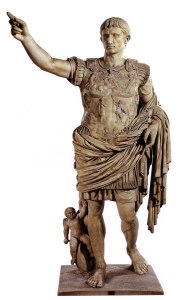After Paul spends some time in Thessalonica, including three Sabbaths teaching in the local synagogue, The Jews stir up trouble, form a mob, and rush to Jason’s house to bring Paul and Silas before the city officials. When they do not find Paul and Silas, they drag Jason before the officials and make their accusations against Paul, pointing out that “Jason welcomed them.” Jason posted bond and was released (Acts 17:5-8).

Since he hosts Paul, Silas, and Timothy in his home, commentaries often assume he was prosperous. But this may not be the case. In Acts 18:3, Paul stayed and worked with Aquila and Priscilla. As tent-makers, they may have rented a workshop and lived in attached rooms. Jason’s situation may have been better in Thessalonica; if he was a craftsman with several storerooms, he could have hosted several people in his home. For an illustration of the range of homes for early Christians, see Peter Oakes, Reading Romans in Pompeii (Fortress 2009).
On the other hand, Jason could post a bond not only for himself but also for Paul and Silas (17:9). In the oft-quoted opinion of A. N. SherwinWhite, “What is happening to Jason is clear enough: he is giving security for the good behavior of his guests, and hence hastens to dispatch Paul and Silas out of the way to Beroea, where the jurisdiction of the magistrates of Thessalonica was not valid” (Roman Society and Roman Law in the New Testament (Oxford, 1963], 63). Although we have no clue how much was required, that he could make any sort of payment is an indication he had some wealth.
I would also suggest Luke may be drawing a parallel between Lydia in Philippi and Jason in Thessalonica. Both respond to the Gospel and host Paul’s ministry team in their homes. Luke often uses pairs of similar stories, one featuring a female and the other featuring a male. For example, in Acts 9:32-43, Peter heals Aeneas and raises Tabitha from the dead. Perhaps Luke gives us two examples of relatively wealthy patrons who host Paul in their homes and continue to host the church after Paul leaves the city.
Is Jason the same person Paul mentions in Romans 16:21? He refers to a person named Jason, along with Sopater, “my kinsmen.” The noun συγγενής can refer to a relative, but this can be as broad as saying “fellow Jew” (Keener, 3:2550). Romans was likely written from Corinth during the three months Paul stayed in Corinth in Acts 20:2-3. In Acts 20:4, Luke indicates that Paul was accompanied by Sopater of Berea, Aristarchus, and Secundus from Thessalonica. Although this is possible, since Luke is ready to identify a relative of Paul in Acts 23:16, Jason is more likely not a relative of Paul. He is likely a Jew or God-fearing Gentle who heard Paul’s preaching in the synagogue and was among those who joined Paul and Silas (17:4).
That Paul and Silas are forced out of Thessalonica, leaving Jason with a financial burden, is an issue that likely haunted Paul. One of the main themes of 1 Thessalonians deals with the charge Paul was a huckster who came to Thessalonica for personal gain and left Jason in financial and legal danger.

